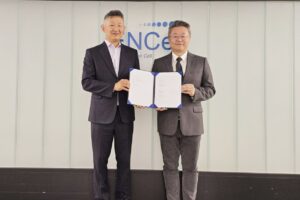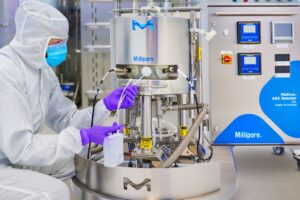Aptevo Therapeutics has agreed to sell its three marketed hyperimmune products, WinRho SDF, HepaGam B, and VARIZIG, to Saol Therapeutics for total consideration of up to $74.5m.
Subscribe to our email newsletter
Under the terms of a definitive purchase agreement executed by the companies, Saol Therapeutics will acquire the three hyperimmune products currently marketed by Aptevo: WinRho SDF for autoimmune platelet disorder and hemolytic disease of the newborn; HepaGam B for the prevention of Hepatitis B following liver transplantation and for treatment following hepatitis B exposure; and VARIZIG for treatment following exposure to varicella zoster virus for individuals with compromised immune systems.
The transaction is valued at up to $74.5 million, including an upfront payment of $65 million, and an additional potential milestone payment of up to $7.5 million related to the achievement of gross profit milestones. In addition, Aptevo may receive up to $2 million related to collection of certain accounts receivable after the closing.
“We’re extremely pleased to announce our agreement with Saol Therapeutics for the sale of our hyperimmune commercial products. The significant non-dilutive funding provided by this transaction will ensure that Aptevo continues to be solidly capitalized to invest in the opportunities where we see the most potential for long-term value creation for our stockholders,” said Marvin L. White, President and Chief Executive Officer.
“With a deal value of up to $74.5 million, representing approximately 2.8 times both our current market capitalization on August 30, 2017 and our 2016 annual revenue, we view this as a very attractive opportunity to monetize our non-core assets and not dilute our stockholders as we continue to invest in promising assets like our ADAPTIR™ platform.”
“Our ADAPTIR platform has generated a rich pipeline of novel immunotherapeutic candidates targeting oncology and autoimmune indications. With bispecific antibodies gaining increasing recognition in the scientific and financial communities as the ‘next-generation’ of therapeutic antibodies, we believe that continued investment in this promising technology platform may yield enhanced value for our stockholders.
“Importantly, this transaction strengthens Aptevo’s cash position and provides us the necessary resources to continue to advance our ADAPTIR product candidates through potentially value-adding inflection points, including an ongoing dose-escalation Phase 1 study of APVO414 in metastatic castration resistant prostate cancer; an ongoing Phase 2 clinical program for otlertuzumab, and future Phase 1 clinical studies of our novel bispecifics focused on engaging the immune system, including, APVO436 and ALG.APV-527, a bispecific targeting ROR1, and a bispecific based on targeted cytokine delivery, APVO210 (formerly known as ES210.)”
The transaction, which is expected to be completed in 2017, is subject to certain customary closing conditions. Piper Jaffray & Co. served as exclusive financial advisor to Aptevo for this transaction. Aptevo anticipates that proceeds from the sale of the three hyperimmune products will be used to (i) satisfy its current debt obligation to MidCap Financial, and (ii) advance its clinical and preclinical ADAPTIR candidates.
In addition to its three marketed hyperimmune products, WinRho SDF, HepaGam B, and VARIZIG, which are the subject of the agreement with Saol Therapeutics, Aptevo owns and markets IXINITY®, an intravenous recombinant factor IX therapeutic for use in people with Hemophilia B.
IXINITY® – an intravenous recombinant factor IX therapeutic for use in people with Hemophilia B – a hereditary bleeding disorder characterized by a deficiency of clotting factor IX in the blood, which is necessary to control bleeding. IXINITY was launched in 2015 and is marketed in the United States by Aptevo.
APVO414 – a bispecific ADAPTIR candidate, currently in Phase 1 development, targeting prostate specific membrane antigen (PSMA), an enzyme that is expressed on the surface of prostate cancer cells, and, CD3, a component of the T cell receptor complex expressed on all T cells.
APVO414 redirects T cells to specifically kill PSMA expressing tumors and is being developed for metastatic castration-resistant prostate cancer, which is advanced prostate cancer that has spread to other organs and no longer responds to hormone blocking therapies.
Otlertuzumab – a monospecific ADAPTIR candidate currently in Phase 2 development for the treatment of chronic lymphocytic leukemia (CLL). Data from a Phase 2 clinical trial evaluating otlertuzumab in combination with bendamustine, compared to bendamustine alone, demonstrated a significant increase in median progression free survival for the combination, from approximately 10 to 16 months.
APVO436 – a bispecific ADAPTIR candidate currently in preclinical development targeting CD123, a cell surface receptor highly expressed on several hematological malignancies and CD3, a component of the T-cell receptor. APVO436 is designed to engage T cells to kill tumor cells.
ALG.APV-527 – a bispecific antibody candidate, partnered with Alligator Bioscience, featuring a novel mechanism of action designed to simultaneously target 4-1BB (CD137) and an undisclosed tumor antigen.
4-1BB, a costimulatory receptor on T cells, is known to enhance the immune response to cancer through activation of tumor-specific T cells and is believed to be a promising target for new immunotherapeutic approaches. ALG.APV-527 could potentially have utility in the treatment of a broad spectrum of cancers over-expressing the tumor antigen, including breast, cervical, non-small-cell-lung, prostate, renal, gastric, colorectal and bladder cancers.
APVO210 – a bispecific ADAPTIR preclinical candidate with a novel mechanism of action based on targeted cytokine delivery. APVO210 is composed of a humanized anti-CD86 antibody fused with a modified form of IL-10 that specifically induces IL-10 signaling on antigen presenting cells, but not on lymphoid populations.
APVO210 functions by suppressing immune responses and inducing certain tolerogenic responses and therefore may have potential benefit for the treatment of autoimmune and inflammatory diseases.
ROR1 Bispecific – a proof-of-concept bispecific candidate targeting ROR1, an antigen found on several solid tumors and hematologic, or blood-related malignancies. Initial preclinical data demonstrate redirected T cell killing of tumors expressing ROR1 in vitro and in vivo in animal models.
 Advertise With UsAdvertise on our extensive network of industry websites and newsletters.
Advertise With UsAdvertise on our extensive network of industry websites and newsletters.
 Get the PBR newsletterSign up to our free email to get all the latest PBR
news.
Get the PBR newsletterSign up to our free email to get all the latest PBR
news.

